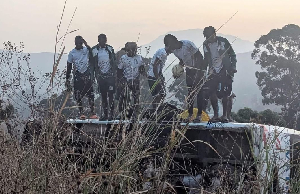The Cameroon in West Africa has been identified as a nation with a high prevalence of HIV and AIDS, according to a UNAIDS report. What are churches in the country doing to aid in healing communities faced with the threat of this disease? How can Christian theology inspire healing and also address the gender discrimination that makes women more vulnerable to the HIV pandemic?
Rev. Dr Priscille Djomhoue, a Cameroonian theologian, responded to these questions and more in an interview on 25 March. She is an author of several academic essays on HIV and AIDS and is deeply engaged with the Ecumenical HIV and AIDS Initiative in Africa (EHAIA), a World Council of Churches project.
What are churches in Cameroon doing to address the issue of HIV and AIDS?
The HIV issue is addressed in different ways by the churches in Cameroon. Some churches hold well-structured programmes. For example the Presbyterian Church in Cameroon (PCC) works through congregations, a theological seminary, secondary schools and health units.
The PCC works in eight strategic areas, including prevention, care, counseling, capacity building, advocacy, reflection, education and support. In their seminary and schools they have set up "HIV and AIDS clubs" that provide students with information about HIV and AIDS. Such courses are taught not only in theological institutions only but also are combined with other disciplines. Some students chose to write their dissertations on the issue of the HIV pandemic.
In other churches, the issue is addressed through sermons, Bible studies, counseling etc. but often not in as well-organized a way. People living with HIV and AIDS are treated like other sick people in the community; however, some churches are not well equipped to provide sufficient support.
How does gender discrimination impact dealing with the issue of HIV in Cameroon?
The Cameroon government is trying to reduce gender discrimination by introducing inclusive laws that give the same rights to both men and women. Some religious leaders also encourage the development of harmonious relationships between men and women. However, there are still many challenges. One is that some churches are slow in speaking about gender discrimination.
Women, even with their many responsibilities, are expected to follow decisions made by men. One consequence of this practice is that women are not able to make decisions that can prevent sexually transmitted diseases, or choose the way they have sex with men.
Sexual harassment is another big issue. In order to keep jobs, to succeed in training, school or other studies, some women are forced to have undesired sex with male leaders. Patriarchy hidden behind such practices is a means through which HIV continues to be spread. However, there are factors other than patriarchy through which even women become part of the system of exploitation.
How can Christian theology inspire churches to address the issue of HIV?
In Cameroon, I have observed that in theological institutions, students who write their dissertation on HIV and AIDS greatly help sensitize churches about this issue. Most importantly, these students continue with this approach when they become pastors of congregations.
Theological publications on HIV are much helpful. They are employed by open-minded pastors who use them to educate their congregations about this disease. There are other documents that guide readings of the Bible that seek ways to respond to the challenge of HIV and AIDS. Writings that take into consideration cultural and traditional aspects help churches speak about the spread of this disease. Such writings include contextual Bible studies used by groups in the churches.
Christian theology can surely inspire churches to address the issue of HIV. It can help revise erroneous readings of the Bible which do not help creating an accurate awareness of HIV and instead promote the ones which make for understanding enlightened by the gospel of life and love.
What role you think ecumenical projects like the EHAIA can play to raise awareness and help eliminate risks of HIV and AIDS?
It is not disputable that the role of EHAIA and other faith-based projects is important. They invoke reflections, education and sensitization about this issue. They help raise awareness among the international community, churches and local communities on how to minimize the negative effect of HIV and AIDS. It is important because there are still church institutions where this issue is not seriously taken into account. The challenge today is to bring the churches and Christian institutions to join hands and fight the battle against HIV and AIDS through well-structured programmes.
Infos Santé of Wednesday, 26 March 2014
Source: World Council of Churches












